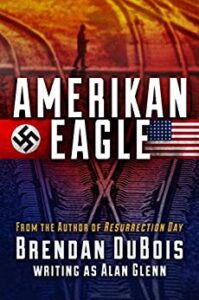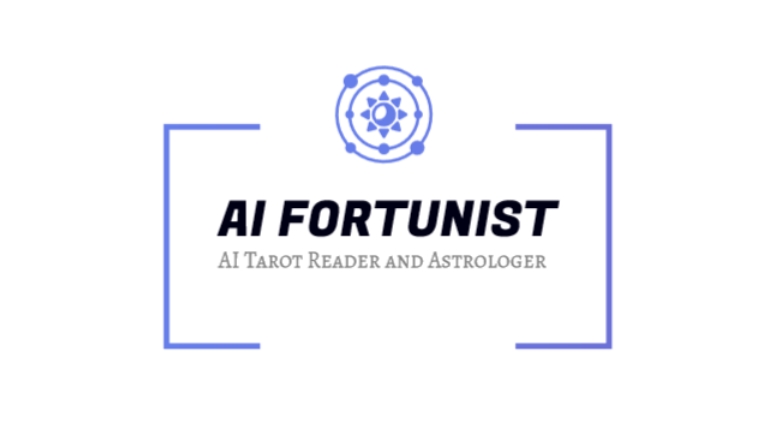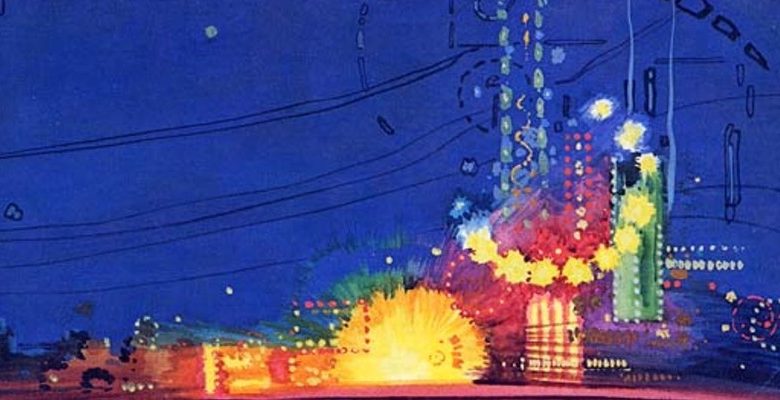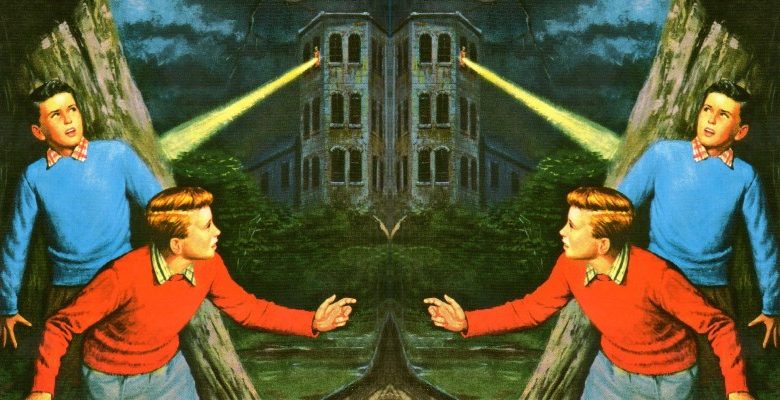[ad_1]
To borrow a quote from Doctor Strange in Spider-Man: No Way Home, “The multiverse is a concept about which we know frighteningly little.”
Do parallel realities exist? Are they lurking out there in the vastness of known and unknown reality, separated by a thin curtain of rules that dictate the field quantum mechanics?
Without access to the mystic arts (or even the technology utilized by the Time Variance Authority), we won’t know for certain if the many worlds interpretation carries any truth. In the meantime, authors with a passion for speculative fiction will continue to imagine what reality might look like had history taken an oh-so-different turn at one point or another.
All of it rests on the single question “What if…?” (that Marvel reference was unintended).
What if FDR was successfully assassinated by Giuseppe Zangara in 1933? What if Nazi Germany and Imperial Japan won the Second World War? What if Jewish-European refugees settled the town of Sitka, Alaska in the early 1940s? What if Hollywood found a way to quite literally profit off the human soul?
As the grandson of a Holocaust survivor who grew up hearing about the heinous acts of Hitler’s Final Solution in school and at home, I usually find myself gravitating toward works of alternate history dealing with Judaism, anti-Semitism, and World War II.
That old adage about the Holocaust — “It could happen here” — fascinates me. Therein lies the second foundational question of speculative literary adventures that hook yours truly: How easy would it be for a country, particularly one founded on democratic principles, to slip quietly into fascism without anyone batting an eye?
Below are ten of my all-time must-read alternate history thrillers set against the backdrop of authoritarian and/or dystopian worlds that might have been. Several of these titles inspired me to finally put the proverbial pen to proverbial paper — an act that resulted in my debut novel, Beat the Devils (on sale from Grand Central Publishing Tuesday, March 22).
Let’s take a stroll across the multiverse, shall we?

The Ultimate Solution, Eric Norden (1973)
Published just a hair over a decade after The Man in the High Castle, Eric Norden’s unflinching depiction of America crushed under the jackboot of stomach-turning Nazi fascism takes the premise of Philip K. Dick’s seminal alternate history novel and jacks it up with a syringe full of methamphetamine. Set in Manhattan three decades after Germany won the Second World War, an apathetic NYPD officer is tasked with finding the last Jew on Earth. How is this even possible when the global Jewish population was hunted to extinction decades before?
I shan’t be spoiling the answer to that overarching mystery, but Norden — who interviewed Albert Speer for a Playboy article in 1971 — has a talent for world-building that is as impressive as it is nightmarish. The sadistic irony of fugitive Jews being tracked to the jungles of post-war South America in the same way the Mossad and other Nazi-hunting parties found war criminals in our own reality contains all the unimaginable horror of a Stephen King tale.
This society the Nazis have created is sickeningly obscene: American death factories where the crematoria run for 24 hours a day, antique collectors with a macabre taste for objects made of Jewish body parts, “Untermenschen” bred for the purposes of servitude and deadly entertainment. A culture where cruelty is celebrated and compassion punished.
So many other horrors the rational mind can barely comprehend. The imagined reality of The Ultimate Solution is a car wreck piled high with burning bodies, and you just can’t look away.

Fatherland, Robert Harris (1992)
Fatherland may just be my favorite entry on this list. It certainly was the biggest source of inspiration for Beat the Devils. Harris’s vision of a fully-realized Germania is a masterclass in alternate history storytelling and a profound exploration of the phrase “history is written by the victors.”
If so-called “Master Race” had won the Second World War, to what extent would they whitewash their industrialized extermination program of Europe’s Jewish population? It’s a chilling question to which Fatherland (a Twilight Zone reflection of Philip Kerr’s Bernie Gunther series) provides an equally chilling answer.
When the corpse of one Josef Bühler washes up on the shores of the Havel, homicide detective and disillusioned Aryan, Xavier March, starts to unravel an immense conspiracy that’s got nothing to do with police corruption or shady land deals. In other words, all the expected beats of a noir mystery don’t apply here. This dangerous cover-up aims much higher: someone wants to put a tight lid on the Holocaust. If the attendees of the infamous Wannsee Conference (the 1942 meeting that set the Final Solution in motion) aren’t safe, then no one is.

’48, James Herbert (1996)
A non-stop thrill ride that would make for one hell of a Hollywood blockbuster, ’48 takes place in a post-apocalyptic version of London littered with corpses, both living and deceased.
In this reality, ol’ Adolf knew he was about to lose the war and decided that if he couldn’t have the world, then no one else could either. Utilizing the deadly V-2 rocket technology developed by scientists like Wernher von Braun, the Fuhrer unleashed a biological weapon known simply as the “Blood Death” on his allied enemies. The lucky ones died instantly while others suffer the agonizing fate of a slow and painful demise.
Some, like Hoke — an American pilot who was trapped in London when the world went to pot — have immunity from the disease and spend a good portion of their days evading a fascist gang of Blackshirts (led by the deranged Max Hubble) who believe that immune blood can reverse their crawling expiration dates. Throw in a mad German bomber who doesn’t know — or perhaps doesn’t care — that the war is long over and you’ve got yourself the literary equivalent of an intense treadmill workout that barely lets you catch your breath.

K is for Killing, Denis MacEoin (written as Daniel Easterman) (1997)
If you’re a fan of Phillip Roth’s The Plot Against America, odds are good you’ll enjoy K is for Killing. Like Roth’s pseudo-biographical work, Easterman’s novel unfold in a timeline where celebrated pilot, outspoken isolationist, and known anti-Semite Charles Lindbergh was elected president of the United States. Similar to The Ultimate Solution, however, this book takes a worst case scenario and pumps it full of fight-or-flight adrenaline.
Not only is Lindbergh president, but he got the job by the support of a political group that calls itself the American Aryan Alliance. For all intents and purposes, America is now run by the Ku Klux Klan, which is only too happy to adopt the barbarous practices of their German cousins. Jews are thrown into domestic concentration camps, Black people are gleefully lynched without a single word of protest, and children are indoctrinated with bigotry via the KidsKlan (Hitler Youth, American style).
Easterman cleverly opens the story from the perspective of a Jewish concentration camp inmate. He makes the reader believe that they’ve been dropped into Nazi-occupied Europe, only to reveal at the very end of the chapter that this is actually an eerie case of home-grown internment.
British spy John Ridgeforth is smuggled into the country with one single goal: assassinate Lindbergh and force the U.S. into conflict with Germany. Can he complete his mission and save America’s moral standing in the world?
No spoilers, just a guarantee: you’ll be on the edge of your seat for this one.

The Yiddish Policemen’s Union, Michael Chabon (2007)
This book was recommended to me by a friend in college. Hearing him describe the concept was a mind-blowing experience in and of itself. European-Jewish refugees settling Alaska at the outbreak of WWII? A thriving modern American town that speaks Yiddish? Ultra-Orthodox mafia bosses? This I had to see for myself.
I knew I would have to make the journey to the university library as soon as I could. After finally diving into Chabon’s wondrous twist on the genre, it was plain to see why The Yiddish Policemen’s Union had been the recipient of several accolades, including the Hugo, Nebula, Locus, and Sidewise awards.
A hardboiled alternate history thriller told from the point-of-view of a Slivovitz-guzzling Jewish detective uncovering a messianic scheme was everything I could ask for as a young Member of the Tribe. The deep-cut and fearless depiction of Judaism and its idiosyncrasies (be it religious, cultural, or linguistic) in a piece of mainstream mystery fiction emboldened me just a few years later when I sat down to write my own alt-history novel with a similar intent.

Wake up and Dream, Ian R. MacLeod (2011)
Mr. MacLeod’s imagination just isn’t fair to the rest of us. His idea to turn Clark Gable — one of the most legendary screen icons of all time — into a shabby private eye once the aspiring actor didn’t cut the mustard in a version of Hollywood that figured out how to capture peoples’ emotional auras is a premise that is simultaneously bonkers and genius. It’s one of those set-ups that instantly has you on board before you even read a single printed word.
The execution is just as impressive: a Huxleyan critique of the vapid soullessness of the entertainment industry. In this case, Tinseltown’s figured out a way to capture the soul and sell it back to the moviegoing public in the form of “feelies” (the next step in filmmaking evolution). Keep the people doped up on the warm embrace of projected emotions long enough, and they won’t much care much if America hops into bed with those pesky Nazis.
Gable finds himself unwittingly sucked back into the world of fame and fortune he nearly had a firm grasp on all those years ago when a new feelie project puts his life in jeopardy.
I really could go on and on about how much I adore this book, but what’s the point in that? Go check it out for yourself! Fun fact: I once tried to buy the film rights to this book as a broke college student. Needless to say, the deal never made it past my naive pitch.
Ah well, a man can dream…pun intended.

Dominion, C.J. Sansom (2012)
The multiperspectivity of Dominion is what makes Sansom’s dense (as in 640 pages) and award-winning novel such an effective thriller. Its various points-of-view give the reader an ever-present sense of mounting tension and release. Just when you want to know more about a specific character and the predicament in which they find themselves, the narrative shifts its attention elsewhere. Just like that explosive television cliffhanger that prompts the familiar “just one more episode” response at three a.m. on a school night.
Ok, but what about the story? Dominion picks up in the United Kingdom, circa 1952, a little over a decade since Lord Halifax became prime minister instead of cigar-chomping Winston Churchill. As a result, Britain surrendered to the Nazis and England has become nothing more than a puppet of the German fascists. Hitler and his cronies are close to conquering the world — all they need now is the atomic knowledge resting comfortably inside the head of one Frank Muncaster.
And so, as Sherlock Holmes once said, the game is afoot. It’s a race against time for the British resistance to place the brilliant, yet mentally disturbed, Frank into their protective custody before the Gestapo can get their hands on him and use their, shall we say, uniquely persuasive methods to find out what the scientist knows.

The Darkest Hour, Tony Schumacher (2014)
The greatest compliment I pay Darkest Hour is that its world — however different from our own — feels like a real, lived-in place. I once emailed that very sentiment to Mr. Schumacher who quite agreed with me. The people who inhabit it are just going about their lives, he told me, trying to make it in a timeline where everything is backwards to us, but not to them.
Nothing is out of the ordinary for these characters, especially the Nazis who occupy the streets of London, forcing British citizens to round up Jews for extermination.
One such individual working for the Germans is John Rossett, a decorated war hero who sleepwalks through life after the tragic death of his family. He does whatever the SS and Gesatpo tell him to do, never questioning his blind loyalty to a genocidal regime because what’s the point of it all, really?
That is until he meets Jacob, a young Jewish boy, who forces the toughened Rossett (nicknamed “The British Lion”) to make a choice: continue to carry out the wishes of the world’s greatest evil or try to make a difference in his — and the United Kingdom’s — darkest hour.
Think Children of Men meets with SS-GB.

Amerikan Eagle, Brendan DuBois (written as Alan Glenn) (2015)
There just aren’t enough alternate history novels featuring Huey Long, aka “the Kingfish,” as president. Amerikan Eagle helps to fill that void.
Elected on a platform of economic revitalization and isolationism, Long presides over the administration that would have belonged to FDR, had the man not been killed by Giuseppe Zangara back in 1933 (back in our reality, the Kingfish was shot and killed in 1935).
The former governor of Louisiana keeps the United States out of the foreign conflict and starts getting all buddy-buddy with the Third Reich, which just needs to crush the Soviets before it can declare victory over Europe. When a dead body mysteriously turns up in the coastal town of Portsmouth, New Hampshire, police officer Sam Miller finds himself swept up in a web of murder, lies, and explosive secrets. You know, of the atomic kind.
DuBois is a master storyteller who drills down to the heart of what it means to keep your head down in a time when raising your voice is needed more than ever. They’ll come for someone else today, but tomorrow…it could be you.

Wolf by Wolf, Ryan Graudin (2015)
“The Man in the High Castle meets Speed Racer with a dash of X-Men and The Hunger Games” is the elevator pitch I often use when recommending Wolf by Wolf. It’s an excellent introduction into the alternate history genre for young adults, but you don’t need to be a gifted youngster to enjoy this one. I remember tearing through it in college like there was no tomorrow.
Its story revolves around Yael, one of the last Jews left in Europe following an Axis victory. She’s able to avoid detection via an uncanny ability to shape-shift (a byproduct of sadistic Nazi concentration camp experiments). Each year, Germany and Japan celebrate their dominance with the Axis Tour, a televised race from Berlin to Tokyo. In addition to a good chunk of prize money, winners of the race are invited to the Victor’s Ball, an event attended by a number of high-ranking officials, including the Fuhrer himself.
Working on behalf of an underground resistance movement, Yael plans to impersonate a celebrated Axis Tour participant, win the race, and — what else? — kill Hitler. Pretty simple, right? Not exactly. Make sure your seatbelt’s on tight because Wolf by Wolf is a fast-paced ride through the treacherous and dimly-lit roads of memory and revenge.
***

[ad_2]






